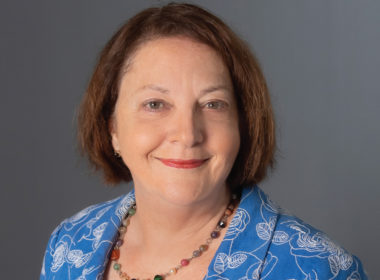John Weir is a partner at Pennicott Weir Lawyers and an accredited specialist in criminal law. After a lifelong interest in the intersection between mental health and the criminal justice system, Weir enrolled in a Master of Forensic Mental Health within the UNSW Faculty of Medicine. Having graduated first in his class, Weir talks about his career and how his two passions have come to overlap.
What made you pursue a career in criminal law?
In my early twenties, my two older sisters were both lawyers. I had just commenced a career in law enforcement, so studying law seemed like the logical thing to do. I studied at the University of Technology part time while I was working two jobs. Because of my law enforcement background, I naturally gravitated towards criminal law. It was very difficult to juggle it all, but when you’re young you tend to cope better with such pressures.
What made you decide to do a Master of Forensic Mental Health?
I was considering post-graduate study and wanted to try something that was different to mainstream law but that still had a connection with criminal law. From my experience as a criminal lawyer, I had encountered the mental health and forensic mental health system in my practice. Many years ago, when I was a Legal Aid solicitor, I used to appear in the magistrate’s mental health review hearings at a local mental health unit. That triggered my interest initially in how the mental health system interacts with the law, particularly when people are detained as involuntary patients.
Can you tell us a bit about the course?
There were not many lawyers doing this degree. It seemed to be mostly psychiatrists and psychologists. It was particularly interesting hearing the clinical perspectives of non-lawyers insofar as it related to the topic of forensic mental health. A central theme is the interrelationship between mental illness and mental conditions and the justice system. Doing this course has given me a greater insight into the operations of the forensic mental health system in NSW. I enjoyed it so much I am contemplating further postgraduate studies.
How did it feel winning the David Greenberg Prize for Outstanding Academic Performance?
It was a very pleasant surprise. I was unaware there was such a prize until I had completed the degree. I assumed, being one of the few lawyers in the course, that there would be a psychiatrist or psychologist that would achieve the best results. It was a great honour to receive the award.
How did you juggle studying while remaining a partner?
It was stressful at times. It required me to engage in effective time management. Ultimately, though, despite quite a few late nights, I managed to get through it. My advice to anyone contemplating post-graduate study on top of a busy career is to surround yourself with friends who can assist and distract you through the process.
Outside of work, what keeps you happy and healthy?
I try to exercise but the contingencies of work sometimes break that ritual. Certainly, when I can I try to adhere to the regimen of fitness and of course, having a good laugh!




